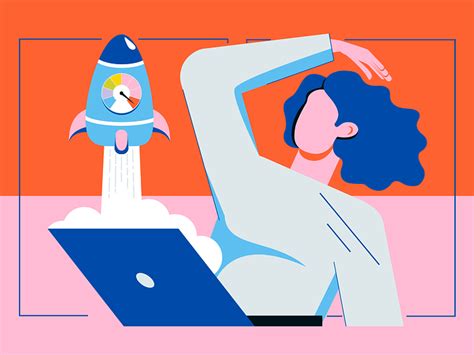In today’s rapidly changing world, lifelong learning has become essential for personal and professional growth. Embracing continuous education not only helps adults stay relevant in their careers but also enhances their overall well-being. In this article, we will explore strategies to jumpstart your lifelong learning journey, ensuring you stay motivated and equipped for success. From understanding the importance of lifelong learning to developing a tailored learning plan, utilizing valuable resources, and focusing on key skills, we’ll cover all the essentials. Additionally, we’ll discuss the significance of setting goals, networking, measuring progress, and anticipating challenges. Join us as we delve into these crucial aspects to empower your ongoing education and development.
gameshoek.com will take you through an extensive exploration of this topic.
1. Why Lifelong Learning Matters
In a world where technology and industries evolve at a breakneck pace, the importance of lifelong learning cannot be overstated. Lifelong learning equips individuals with the skills and knowledge necessary to stay competitive in the job market, adapt to new roles, and meet the demands of dynamic work environments. Beyond career advancement, lifelong learning fosters personal growth, helping individuals develop critical thinking skills, improve problem-solving abilities, and cultivate a deeper understanding of the world around them.
Moreover, continuous education has a significant impact on mental well-being. Engaging in regular learning activities keeps the mind sharp, reducing the risk of cognitive decline as we age. It also boosts confidence and self-esteem, providing a sense of accomplishment and purpose. For many, the process of learning something new can be incredibly fulfilling, sparking curiosity and enthusiasm that enriches daily life.
In addition, lifelong learning promotes social inclusion and active citizenship. By staying informed and educated, individuals are better equipped to participate in community and societal discussions, make informed decisions, and contribute positively to society. The skills and knowledge gained through lifelong learning can also open doors to new hobbies, interests, and social connections, enhancing overall quality of life.
Ultimately, lifelong learning matters because it empowers individuals to continuously improve themselves, stay relevant in an ever-changing world, and lead more fulfilling, engaged lives.

2. How to Stay Motivated
Staying motivated in your lifelong learning journey can be challenging but is crucial for sustained success. One effective strategy is to set clear, achievable goals. Break down your learning objectives into manageable tasks and celebrate small victories along the way. This approach not only makes the process less overwhelming but also provides a sense of accomplishment that fuels motivation.
Another key factor is finding your passion. Choose subjects and skills that genuinely interest you and align with your personal or professional goals. When you are passionate about what you’re learning, the process becomes more enjoyable and engaging.
Additionally, create a supportive learning environment. Surround yourself with like-minded individuals who share your enthusiasm for growth. Join study groups, online forums, or professional networks to exchange ideas and stay inspired.
Incorporating learning into your daily routine can also help maintain motivation. Dedicate specific times each day or week for learning activities, making it a regular part of your schedule. This consistency builds a habit, making it easier to stay committed over time.
Lastly, reward yourself for your efforts. Acknowledge your progress and treat yourself when you reach milestones. These rewards serve as positive reinforcement, keeping your motivation high and your lifelong learning journey on track.

3. What Resources to Utilize
Utilizing the right resources is essential for effective lifelong learning. One of the most accessible resources is online courses. Platforms like Coursera, edX, and Udemy offer a wide range of courses on various subjects, often taught by experts from leading institutions. These courses provide flexibility, allowing you to learn at your own pace and fit your schedule.
Libraries, both physical and digital, are treasure troves of knowledge. Many public libraries offer free access to a vast array of books, journals, and research papers. Additionally, digital libraries and academic databases such as JSTOR and Google Scholar can provide valuable academic and professional resources.
Professional organizations and associations often provide resources tailored to specific industries. Membership can give you access to specialized training, workshops, conferences, and networking opportunities, keeping you updated with the latest trends and advancements in your field.
Mentorship programs are another invaluable resource. Finding a mentor who has experience and expertise in your area of interest can provide personalized guidance, support, and insights that accelerate your learning and professional growth.
Lastly, don’t overlook the power of social media and online communities. Platforms like LinkedIn, Twitter, and specialized forums can connect you with experts, peers, and groups that share your interests. Engaging in discussions and following thought leaders can keep you informed and inspired.

4. Why Setting Goals is Crucial
Setting goals is crucial for successful lifelong learning as it provides direction and purpose. Clear, specific goals help you focus on what you want to achieve, making your learning journey more structured and efficient. By defining what success looks like, you can create a roadmap to guide your efforts and measure your progress along the way.
Goals also serve as powerful motivators. When you have concrete objectives to work towards, it’s easier to stay motivated and committed, even when faced with challenges. Breaking down larger goals into smaller, manageable tasks can make the process less daunting and more achievable, boosting your confidence as you tick off each milestone.
Moreover, setting goals allows for better time management. By prioritizing your learning objectives, you can allocate your time and resources more effectively, ensuring that you make steady progress without feeling overwhelmed.
Regularly reviewing and adjusting your goals ensures that they remain relevant and aligned with your evolving interests and needs. This flexibility allows you to adapt to new opportunities and challenges, keeping your lifelong learning journey dynamic and responsive to change.

5. How to Develop a Learning Plan
Developing a learning plan is a vital step in achieving your lifelong learning goals. Start by assessing your current skills and identifying areas where you want to grow. This self-assessment helps you understand your strengths and weaknesses, allowing you to tailor your plan to address specific needs.
Next, define your learning objectives clearly. What do you want to achieve in the short term and long term? Be specific and realistic, setting achievable milestones that will keep you motivated and focused.
Once you have your objectives, research the resources and methods that best suit your learning style. Whether it’s online courses, books, workshops, or mentorship, choose the tools that will effectively help you reach your goals.
Create a schedule that incorporates learning into your daily or weekly routine. Consistency is key, so dedicate regular time slots to your educational activities. This could be as little as 30 minutes a day or a few hours a week, depending on your availability and commitment.
Track your progress regularly. Keep a journal or use digital tools to monitor your achievements and reflect on what you’ve learned. This ongoing evaluation allows you to adjust your plan as needed, ensuring it remains relevant and effective.
Finally, stay flexible and open to new opportunities. As you progress, you might discover new interests or face unexpected challenges. Adapting your learning plan to accommodate these changes will keep your journey dynamic and rewarding.

6. What Skills to Focus On
When it comes to lifelong learning, focusing on the right skills is crucial for personal and professional development. Start with foundational skills such as critical thinking and problem-solving. These abilities are essential across all fields and can enhance your capacity to tackle complex issues effectively.
Communication skills, both written and verbal, are also vital. Being able to articulate your ideas clearly and listen actively improves collaboration and fosters better relationships in the workplace and beyond.
In today’s digital age, technological literacy is indispensable. Staying updated with the latest digital tools and platforms ensures you remain competitive and can adapt to new advancements swiftly. This includes understanding basic coding, data analysis, and using software relevant to your industry.
Leadership and management skills are important for those aspiring to advance in their careers. These skills help in guiding teams, making strategic decisions, and managing projects efficiently.
Lastly, focus on emotional intelligence. Understanding and managing your emotions, as well as empathizing with others, enhances interpersonal interactions and contributes to a positive work environment. Prioritizing these skills will equip you with a versatile toolkit for continuous growth and success.

7. Why Networking is Important
Networking is a crucial component of lifelong learning and professional development. Building a strong network connects you with individuals who can offer valuable insights, advice, and opportunities related to your field of interest. These connections can introduce you to new resources, trends, and best practices that can significantly enhance your learning journey.
Networking also opens doors to mentorship and collaboration. Experienced professionals and peers can provide guidance, share their experiences, and help you navigate challenges, accelerating your growth and skill acquisition. Engaging with a diverse group of individuals broadens your perspectives and fosters creative problem-solving.
Moreover, networking can lead to career advancement and job opportunities. Many positions are filled through referrals and personal connections, making your network a valuable asset in the job market. By actively participating in industry events, online forums, and professional groups, you can establish and maintain relationships that support your ongoing learning and career goals.
Ultimately, networking is not just about exchanging business cards but about creating meaningful, mutually beneficial relationships th

8. How to Measure Progress
Measuring progress is essential to ensure that your lifelong learning efforts are effective and aligned with your goals. Start by setting clear, measurable milestones for each learning objective. These could be specific achievements such as completing a course, mastering a new skill, or reaching a particular level of proficiency.
Regularly review your progress against these milestones. Create a tracking system, whether through a journal, a spreadsheet, or digital tools, to record your accomplishments and setbacks. This allows you to visually assess how far you’ve come and identify areas needing improvement.
Seek feedback from mentors, peers, or instructors. Their perspectives can provide valuable insights into your progress and highlight areas for further development.
Self-reflection is also crucial. Periodically evaluate your learning experiences and outcomes. Ask yourself whether the skills and knowledge gained are meeting your initial goals and if they are applicable to your personal or professional life.
Adjust your learning plan as needed based on these evaluations. This flexibility ensures that your efforts remain relevant and effective, keeping you on track toward achieving your lifelong learning objectives.

9. What Challenges to Anticipate
Embarking on a lifelong learning journey comes with its own set of challenges. One common obstacle is maintaining motivation. The initial enthusiasm may wane over time, especially when faced with demanding schedules or complex topics. To overcome this, set small, achievable goals and celebrate your progress to keep motivation high.
Time management is another challenge. Balancing learning with personal and professional responsibilities can be difficult. Establishing a consistent routine and prioritizing your learning objectives can help integrate education into your daily life more seamlessly.
Additionally, information overload can be overwhelming. With a vast array of resources available, it’s easy to feel lost or unsure where to start. Focus on quality resources that align with your goals, and don’t hesitate to seek guidance from experts or mentors.
Financial constraints can also pose a challenge. Many educational resources come with costs. Look for free or low-cost alternatives, such as online courses, library resources, and community programs, to make learning more accessible.
Lastly, resistance to change is a common issue. Embracing new methods or updating skills can be uncomfortable. Cultivating a growth mindset and staying open to new experiences can help you navigate these challenges and continue progressing in your learning journey.

Lifelong learning is a powerful tool for personal and professional growth. By setting clear goals, staying motivated, utilizing diverse resources, and embracing challenges, you can continually enhance your skills and knowledge. Developing a structured learning plan and measuring your progress ensures that you remain on track. As you navigate your educational journey, remember that persistence and adaptability are key. Embrace the process, and let lifelong learning enrich and empower your life.
gameshoek.com
